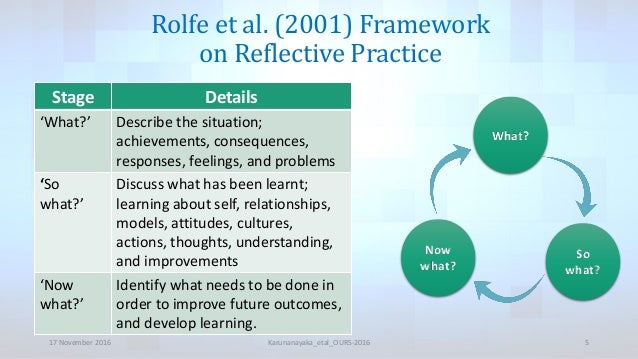Rolfe et al.’s (2001) reflective model will be used in this blog.
What: I had a situation were a parent was offended about a comment that a teacher had said about her son in front of her and other kids. The next day the parent posted her frustrations on Facebook about the situation. The teacher involved was notified by another colleague through a text message. The teacher involved approached me about the situation and showed me the text. Later that day we discovered that other colleagues had already seen the post and shared it amongst each other. .
According to a study from by Tirri (1999) found that there are four main moral dilemmas, 1) dealing with students, issues and confidentiality, 2) Student behaviour regarding school and conflict between home and school. 3) the rights of minority groups 4) teachers inconsistent of enforcing the rules. My ethical dilemma was the unprofessional conduct of two of our colleagues, as they did not approach a senior staff member for advice or the kaiako involved about the situation. The second dilemma was the approach parent took to address the issue. The parent took her issue to a very public domain, instead of approaching a senior member of staff or the kaiako involved.
is about our relationships with others.
"So What?" Ehrich (2011) A model of ethical decision - making
Standard three: Professional Relationships, " communicate effectively with others".
The principal called a hui with the staff and explained the ethical impacts that the behaviour of the two kaiako - as they did not showed any sort of collegiality or did not effectively communicate the issue with a senior member.
Now What
I think after the incident it become clear to me the institutional structures that are in place at the school to prevent this type of incident happening again. I think the acts from senior staff members will encourage younger staff member to act ethically. It was also a chance to educate staff about code of conduct and how we communicate effectively with our colleagues is just as important as how we communicate with whānau members. But with the introduction of Facebook, Snap chat and other social media does make this type of behaviour from colleagues and parents a challenge to control.
Apa referencing
Ehrich, L. C. , Kimber M., Millwater, J. & Cranston, N. (2011). Ethical dilemmas: a model to understand teacher practice, Teachers and Teaching: theory and practice, 17:2, 173-185, DOI: 10.1080/13540602.2011.539794
Education Council. (2017). Our Code Our Standards. Retrieved from: https://educationcouncil.org.nz/sites/default/file...


Comments
Post a Comment